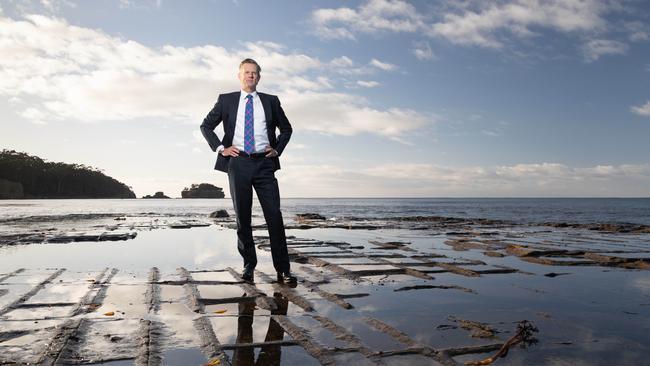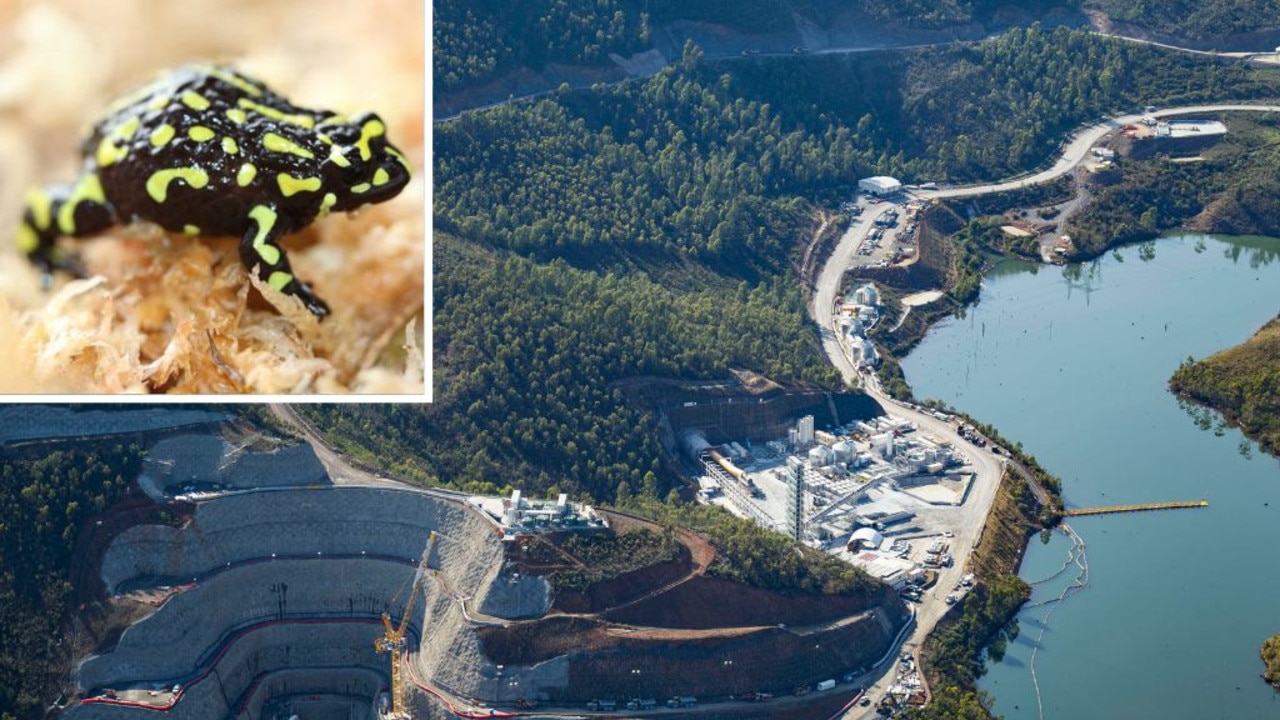Coronavirus: Entrepreneur rides a rich wave of antiviral research
A family-owned Tasmanian business built on a hunch is harvesting seaweed to feed demand for a coronavirus cure.

As consumers around the virus-stricken world reach for immune-boost supplements, they are contributing to a boom for a family-owned Tasmanian business built on a hunch — and seaweed slime.
In 2003, Sydney accountant Paul Garrott wondered whether the wakame seaweed accidentally introduced to Tasmania’s east coast from the bilge water of Japanese woodchip vessels could be a new food business.
The cost of paying divers meant the enterprise proved uneconomic, but Mr Garrott and his father, Geoffrey, a Tasmanian-based accountant, had a better idea. “We set about looking for some higher, value-added opportunities and we were aware that this seaweed species contained a compound called fucoidan,” he said.
Japanese research had linked the compound, found in the seaweed’s protective slime, to potential anti-inflammatory, antiviral and immune-boosting benefits.
About the same time, the Garrotts met a scientist, Helen Fitton, recently arrived in Tasmania from Britain. “We set about developing a unique technology to extract this compound and then we embarked on a commercialisation process and more research and development and it evolved from there,” Mr Garrott said.
“We are now recognised as the global leader in this space in terms of the volume of fucoidan we produce, the research organisations we collaborate with and the bioactivity of the compounds.”
The business, Marinova, with Dr Fitton as chief scientist, now harvests brown seaweeds in Nova Scotia, Patagonia and Tasmania. It exports the extracts to pharmaceutical and nutritional supplement companies in 30 countries.
Because of the heightened global demand for immune health supplements, the company has defied the shutdowns and lay-offs of other industries. “The last three months our sales have increased by 30 per cent to 40 per cent on a year-on-year basis, so very significant,” Mr Garrott said.
“A significant portion of that demand is in response to companies looking for supplementation that might assist in immune function. (The coronavirus) has just turned everyone’s attentions to the world of viruses and that’s permeating the marketplace.”
He said a recent peer-reviewed British study had shown fucoidan reduced lung damage among mice with swine flu, and work was planned in the US and Australia on its impact on the coronavirus.
“We are producing between five and seven tonnes of high-purity certified organic fucoidan every year,” he said.
Given the company sells fucoidan extracts for up to $12,000 a kilogram, his 2003 hunch and experiments with seaweed slime are paying off handsomely.




To join the conversation, please log in. Don't have an account? Register
Join the conversation, you are commenting as Logout